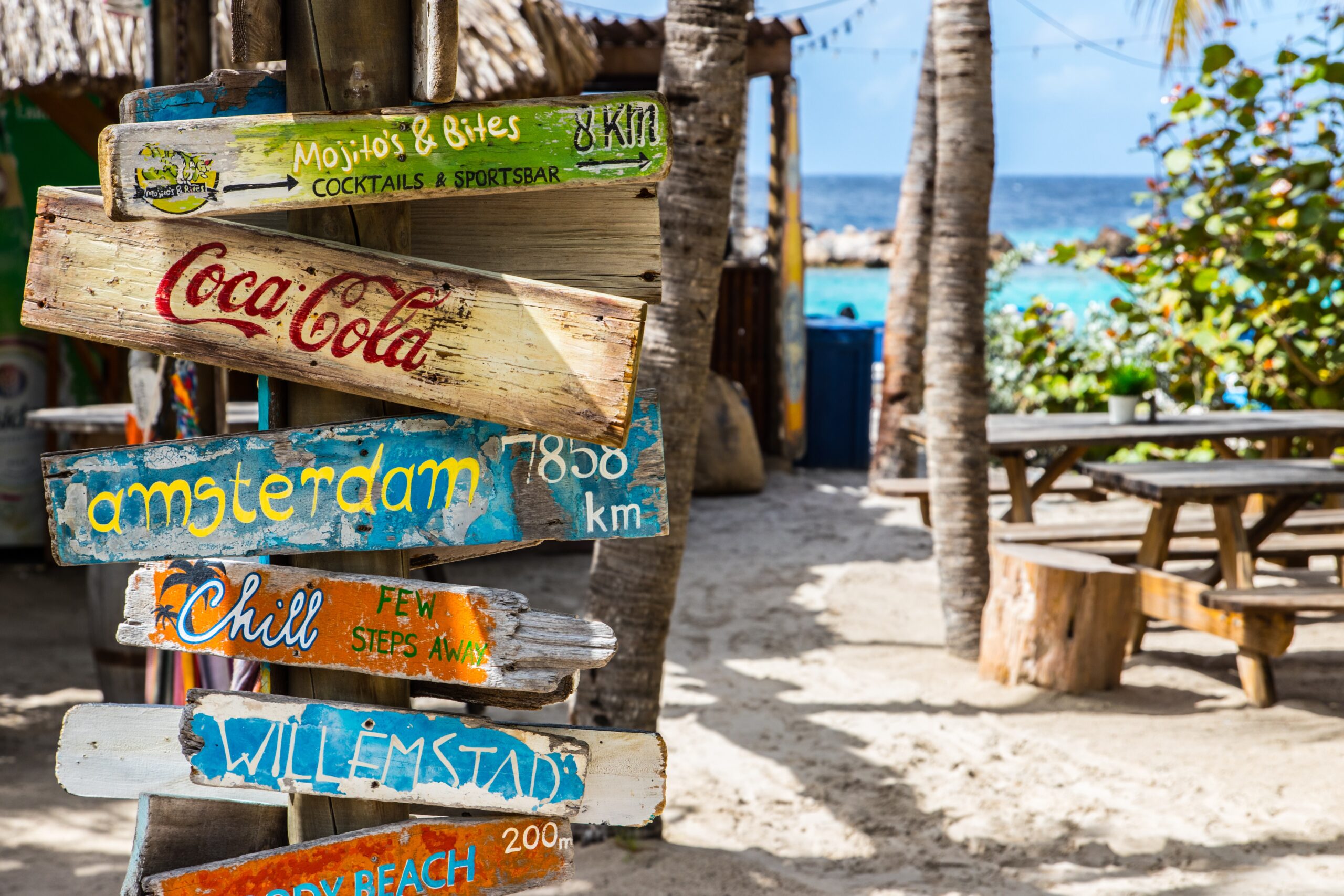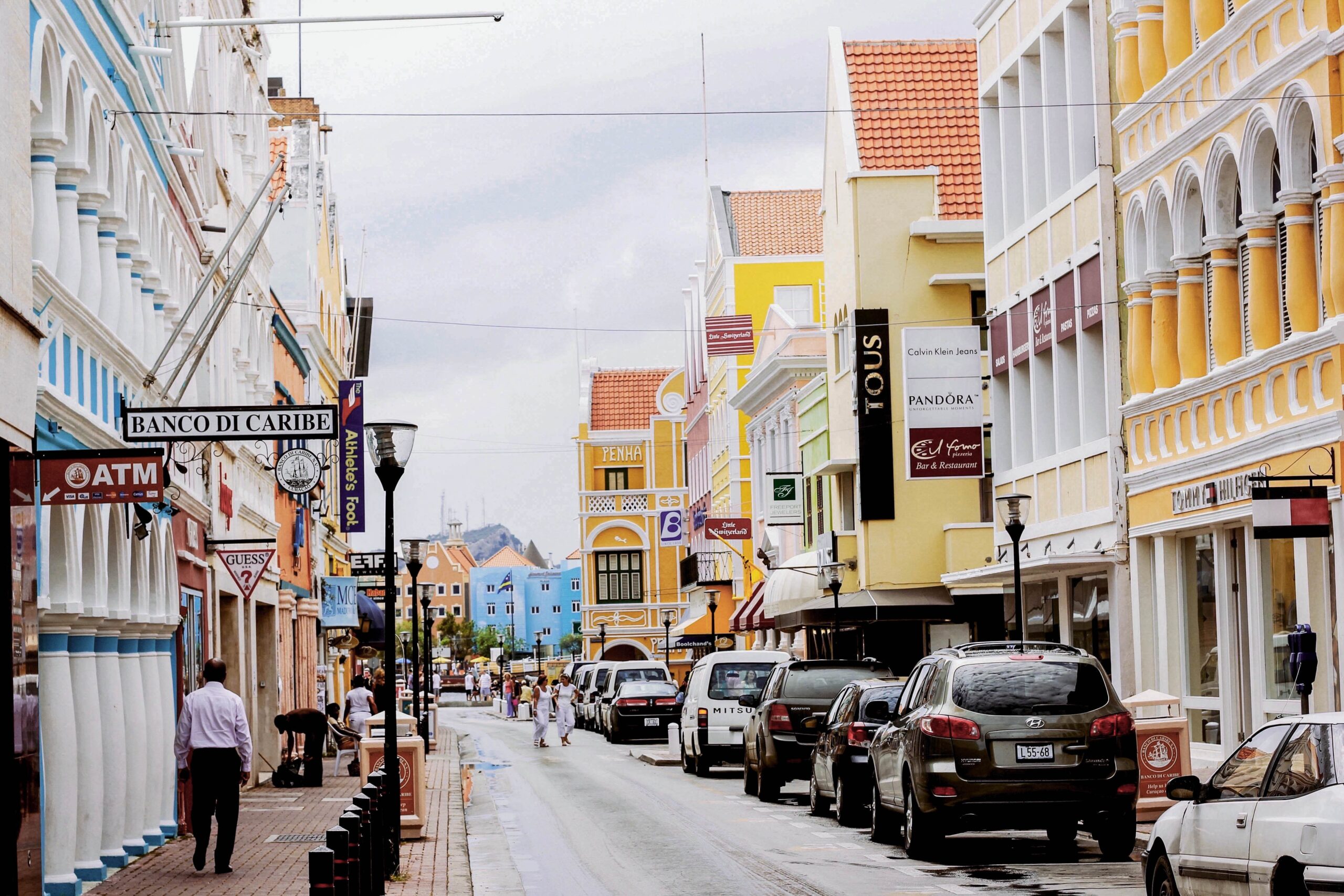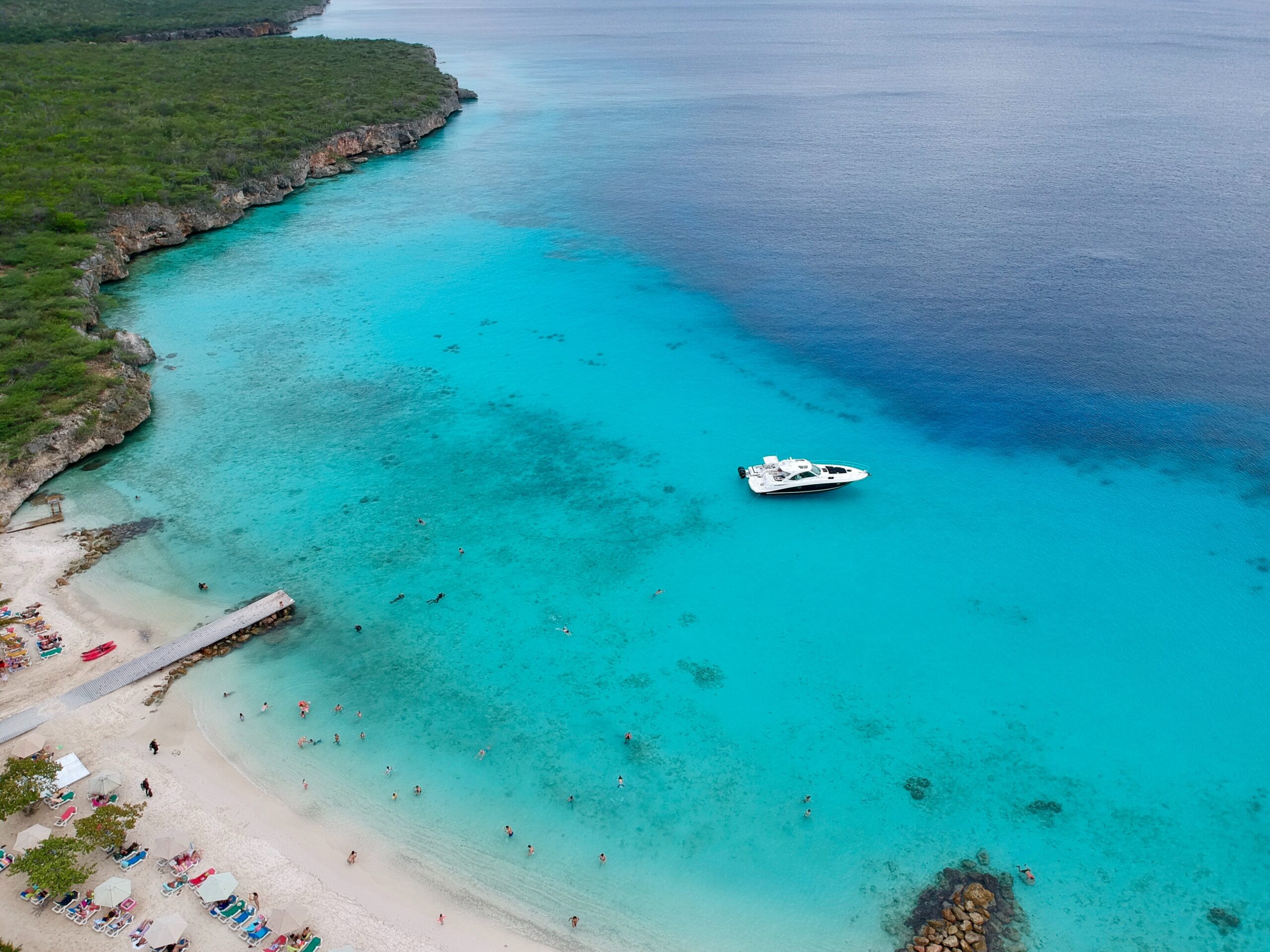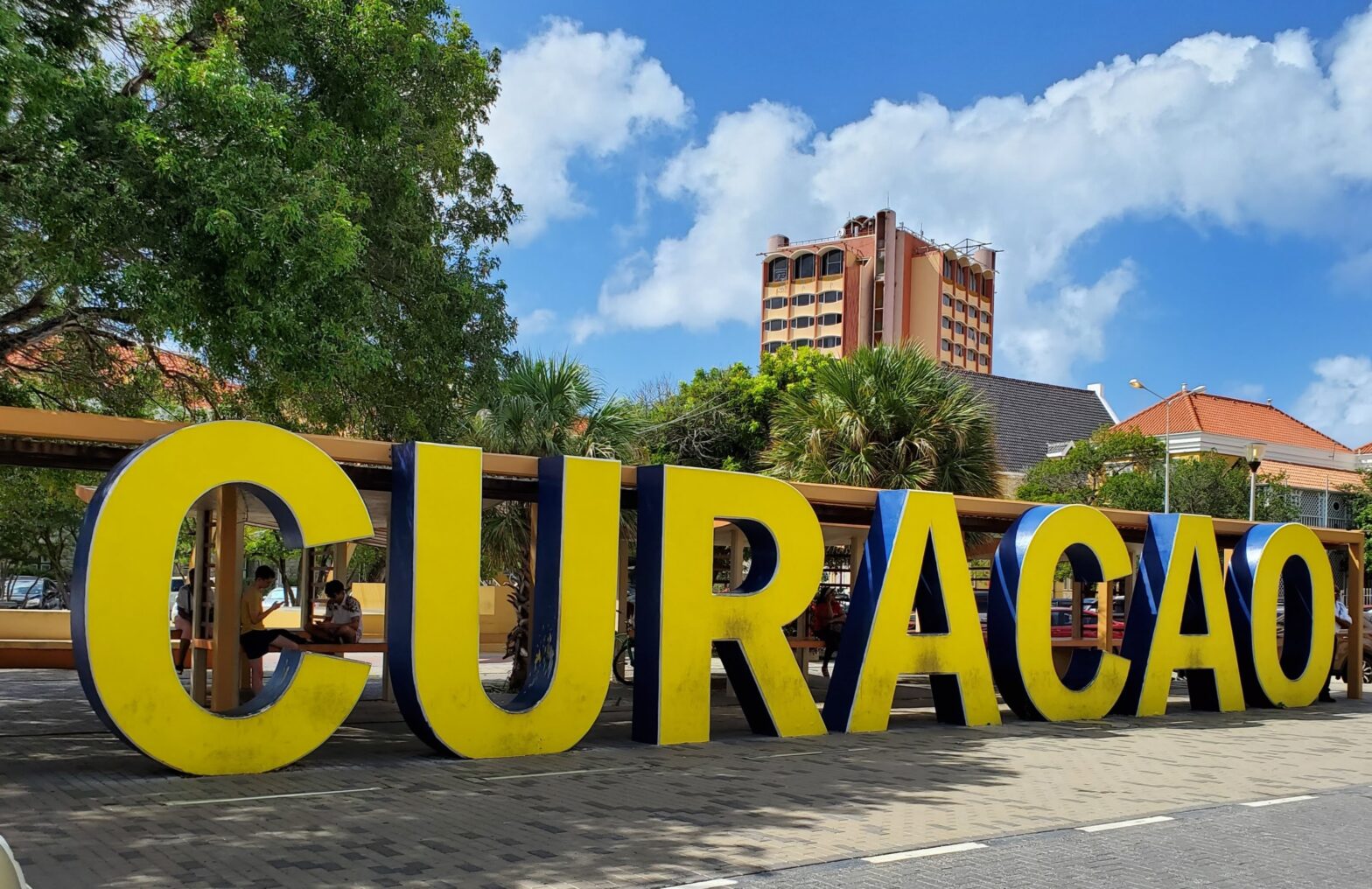Curaçao is a Dutch-Caribbean island and country within the Kingdom of the Netherlands that lends its visitors a uniquely tranquil experience. It is unbeknownst to many travelers because it is somewhat of an underrated hidden gem. It is actually the only World Heritage Site in the entire Caribbean. This, along with the differing ambiance that the island offers, makes Curaçao an ideal destination for travelers desiring an adventurous yet relaxing paradise. Visitors to the island will appreciate the absence of the regular Caribbean island vacationer crowd (compared to other islands).
The island is quite unique. Locals are diverse and speak many different languages, including English, Dutch, Spanish, Portuguese, and Papiamentu. Even some additional African and Indigenous languages are spoken, so travelers coming from various cultural backgrounds will likely not have trouble navigating the island. The identity of Curaçao has remained protected and has a less industrial tourism feel than some other destinations. So, travelers can enjoy the thriving community of Curaçao.
The island also has an array of accommodations and attractions that fit different budgets, which makes it a safe destination for the wallets of many travelers. This applies to activities on the island as well. It is one of the best diving islands in the Caribbean, has many celebrated local restaurants, and has overall popular ecotourism attractions. Marine life and the captivating cuisine of the island go hand in hand since tourists and locals are encouraged to hunt the invasive species of the water.
Most travelers come to Curaçao to enjoy the stunning nature and wildlife, eat the local delicacies and enjoy the friendly locals and vibrant culture. But of course, every destination has its mysteries and the safety level of the island is unclear due to it not being as popular as other Caribbean islands (like Aruba).
Official Travel Advisories
Most islands in the Caribbean are considered generally safe for U.S. travelers and Curaçao is no exception. According to the U.S. Department of State’s advisory level guide, Curaçao sits at level 1, meaning that travelers should exercise normal precautions. As of the time of publication for this article, there are no known dangerous regions across the island nation or known threats that should have travelers on guard.
Is Curaçao Safe for Tourists and Solo Travelers?

Curaçao is generally considered safe for tourists. While petty theft and street crime are concerns in the area, the main tourist areas are safe. This means most tourists do not fear for their safety and can explore the island freely. The island has a low risk for criminal danger and concerns in general since the country has a relatively lower level of criminal activity.
Common Scams to Be Aware of in Curaçao
Petty crime tends to be the biggest concern tourists will face in Curaçao including certain scams that are commonly used to target travelers in unfamiliar lands. Getting overcharged for taxis or excursions is the most common concern and can be avoided by negotiating prices before hand for taxis and requesting that they turn on the meter so that the price is clearly listed. Similarly, only book excursions either through an authorized tour agent or at a resort.
Other scams that are common to tourist destinations include using diversionary tactics to distract tourists, making them a prime target for pickpockets. The most common ones include the bird poop or mustard scam where a stain is “discovered” on a traveler’s clothing with a friendly local promising to help clean it. Ultimately, the target’s valuables are stolen before they can discover what’s happening. Similarly, guessing games on street corners are prime ways to create distractions to help pickpockets snatch valuables.
Additionally, avoid anyone who offers to help use a local ATM under the guise of saving money from local bank fees. This is a scam to scan debit or credit cards and later drain their balances. Likewise, overly friendly individuals that encourage tourists to drink at specific spots may be ringers that help unscrupulous bars rack extreme tabs on unsuspecting tourists and leaving them to foot the bill.
How to Stay Safe in Curaçao
Even though Curaçao sits at a level 1 advisory with the Department of State, that doesn’t mean visitors should throw caution to the wind and engage in risky behaviors that wouldn’t otherwise be done in their home countries. Always be mindful of valuables, avoid exploring desolate or poorly lit areas — especially alone or late at night — and avoid flashing expensive items or wads of cash when out in public. Likewise, obey local laws as every jurisdiction is different.
Transportation

The island’s public transportation is limited. This means that for travelers looking to get around, it may be hard to determine the best way to explore Curaçao. Some buses ride long-distance routes about every hour, while mini buses take short routes through the main roads. Both options are inexpensive and run nonstop throughout the day. Another option is taxis, which are often used to get from the Curaçao International Airport (CUR) to the capital city of Willemstad. The eight-mile journey is not challenging but some travelers prefer not dealing with foreign roads. What travelers gain in convenience, they will end up paying for with the often expensive taxi rides.
Travelers who want to take their possessions and safety into their own hands and have a valid U.S. driver’s license can drive a rental car around. To come and go as they please, travelers will need to rent a vehicle but should be careful when driving. The roads of Curaçao can be dangerous if caution is not exercised. Some traffic signs are not clearly displayed (or may not exist at all), and other motor vehicles (like scooters and ATVs) may not follow traffic rules. In more rural areas, travelers should be careful of animals, low lighting, and slippery roads when it rains.
Where to Stay In Curaçao

While the best places to stay in Curaçao largely depend on each traveler’s preferences and budget, since it is a safe island, there are plenty of options. Here are some of the best choices with plenty to do nearby. Downtown Willemstad is a perfectly safe area to stay in. Since Curaçao is not metropolitan, staying in central areas does not threaten the safety of travelers. The downtown area offers close proximity to the airport and exquisite private beaches. Willemstad is known for its historical buildings, shopping center and fusion (Dutch and Afro-Caribbean) restaurants. The Piscadera bay area is another popular place for tourists to stay since it features a popular dive site and is great for hikers. Nature enthusiasts will enjoy the serene environment that this area offers since it has less tourists.
The accommodation prices in Curaçao vary so travelers should use their discretion when deciding on where to stay. Travelers have an array of accommodation options in each neighborhood that include staying in budget hotels, booking Airbnbs in gated communities or choosing luxury private villas on the beach.
Best Time to Visit Curaçao
The best time to visit Curaçao depends on weather conditions and the travel season. The island is located outside the hurricane belt, so it does not experience torrential rains and has sunny skies throughout most of the year. From December through April, travelers can share some of the best weather the country sees year-round, which is marked by less sweltering heat. This time period is also the most popular season, so accommodation and airfare prices are usually high. The off-season runs from May to November since the summer has hot weather (with 90 degrees being the average temperature high). This season is when travelers can take advantage of more affordable pricing and more spacious beaches if they can handle the heat.
People Also Ask
Is Curaçao safe to visit?
Curaçao sits at a level one advisory level with the U.S. Department of State. This means that tourists should exercise regular precautions when traveling to the island. As long as individuals avoid risky situations and don’t flash expensive items or cash in public settings, Curaçao is an incredibly safe place to visit.
When should you not go to Curaçao?
Technically the island’s low season is from May through November. There are less tourists during this time, which may be appealing for people that want to avoid the crowds. However, most experts agree that avoiding the island between September and October is best. This is when the island has its rainy season and it also overlaps with the hurricane season.
Is Curaçao a cheap or expensive island to visit?
Curaçao is a moderately priced destination for tourists. Luxury and budget accommodations are easily secured. Aside from paying for flights or other means of transportation to reach the island, once tourists arrive, they’ll find that accommodations, food, and even shopping is reasonably priced.
Should You Still Travel to Curaçao?
Depending on where people live in the U.S., Curaçao is a quick trip that makes for perfect weekend getaways or longer if they have the time. With a low level 1 advisory level, tourists can confidently travel to the island without having to take heightened precautions. Of course, no locale is without risks and the biggest concern tourists will potentially face include being overcharged for taxi rides and excursions, or falling victim to an enterprising pickpocket. With a moderate cost of living which makes transportation, food, and accommodation affordable, there’s no reason to cross Curaçao off a bucket list.
